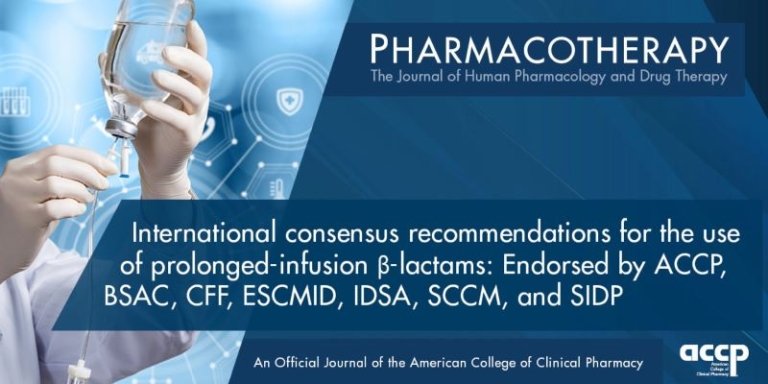Midwestern University Researcher Contributes to Global Guidelines for Extended IV Antibiotic Use
Faculty part of international panel to determine consensus recommendations
- IL - Downers Grove

The first international consensus recommendations on extended use of strong, infection-fighting antibiotics (beta-lactams) have been reviewed and endorsed by the American College of Clinical Pharmacy, British Society for Antimicrobial Chemotherapy, Cystic Fibrosis Foundation, European Society of Clinical Microbiology and Infectious Diseases, Infectious Diseases Society of America, Society of Critical Care Medicine, and Society of Infectious Diseases Pharmacists. Marc Scheetz, Pharm.D., M.Sc., Associate Dean of Research and Professor at Midwestern University was the senior author of a 17-person, multidisciplinary author panel to develop the guidelines which were published in the August 2023 issue of Pharmacotherapy, an official journal of the American College of Clinical Pharmacy.
As a member of the panel, Dr. Scheetz reviewed the published literature to formulate consensus recommendations for the use of prolonged-infusion beta-lactam (β-lactam) antibiotics for severely and non-severely ill adult patients, pediatric patients, and patients with obesity. Intravenous β-lactam antibiotics remain a cornerstone in the management of bacterial infections because of their broad spectrum of activity and excellent tolerability. Continuous and extended administration of β-lactam antibiotics can lengthen the duration during which the concentration of these antibiotics remains above the minimum level required to inhibit the growth of the pathogenic microorganism. This approach aims to maximize the effectiveness of reducing the amount of bacteria present. To date, implementation of prolonged-infusion dosing regimens has been inconsistent.
“It was an absolute honor and privilege to work with our seven supporting organizations and 17-author panel over a three-year period. We hope that our consensus recommendations help to clarify where prolonged-infusion β-lactam antibiotics improve patient outcomes and where more research is necessary,” Dr. Scheetz said.

The consensus recommendations guide the pharmacokinetic and pharmacodynamic targets, therapeutic drug monitoring considerations, and the use of prolonged infusion β-lactam therapy in severely and non-severely ill adult patients, pediatric patients, and patients with obesity. The Consensus Recommendations and Executive Summary are published and open access in the journal Pharmacotherapy. Dr. C. Lindsay DeVane, Pharmacotherapy editor-in-chief, commented, “The tenets of drug dosage regimen design are perhaps more important for antimicrobial use than in many areas of pharmacotherapy. The ability to establish pharmacodynamic goals including minimum inhibitory concentrations allows pharmacokinetic principles theorized and confirmed over several decades to be applied in individual patients to optimize drug efficacy. The availability of consensus recommendations endorsed by international organizations for prolonged infusion of beta-lactam antibiotics provides an impetus to improve the effective treatment of infectious diseases using presently available resources.”
Dr. Scheetz has authored over 200 original research manuscripts and review articles in the area of anti-infective pharmacokinetics and pharmacodynamics and currently serves as a reviewer for several infectious diseases, pharmacy, and medical journals. He is the Director of the Pharmacometrics Center of Excellence at Midwestern University and holds dual appointments as a Professor in the College of Pharmacy and the College of Graduate Studies. Dr. Scheetz currently practices clinically as an infectious diseases pharmacist at Northwestern Memorial Hospital in Chicago, IL.



